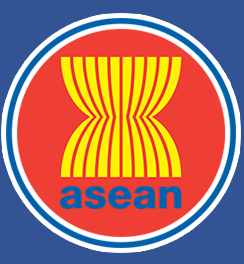ASEAN Journal on Science and Technology for Development
Abstract
One of the methods to protect our environment is to convert the fuel's chemical energy directly into electricity, bypassing the fuel's combustion process. This method is implemented in devices called fuel cells. Among them, the proton exchange membrane fuel cell (PEMFC) is widely used in practice because it has outstanding advantages such as high power density and efficiency, low operating temperature and noise, compactness, fast start-up, and, most importantly, only releases water, entirely safe for the environment. The paper presents a method for selecting materials for manufacturing PEMFC components, making a single PEMFC model based on the materials chosen, then digitizing the model in Ansys software and conducting numerical experiments on this model. The numerical polarization curve was constructed, almost converging with the experimental results. Based on the numerical modeling results, we observe and evaluate the physical and electrochemical phenomena inside the PEMFC that cannot be observed experimentally. The analysis and evaluation results of static pressure, inside PEMFC temperature, hydrogen and oxygen mass fractions, water contents, liquid saturation levels inside the PEMFC components, and electrode current densities are given. The water contents are used to evaluate the water management level of the PEMFC. The liquid saturation levels of the membrane electrode assembly are maintained to ensure the membrane proton conductivity. The current densities on two electrodes confirm the electrical balance of the implemented numerical model. Using a numerical model has many advantages, such as reducing experimental costs and observing phenomena that cannot be reported experimentally. Based on simulation results, measures are proposed to optimize the PEMFC design and correctly select its operating parameters.
Keywords
Fuel cell; PEMFC; MEA; membrane; catalyst layer; bipolar plates
Publication Date
2025
Received Date
07/07/2025
Revised Date
16/09/2025
Accepted Date
22/10/2025
Recommended Citation
Cong, Doan Nguyen and Ha, Hiep Nguyen
(2025)
"Numerical Modeling of Performance and Phenomena in A Single Proton Exchange Membrane Fuel Cell,"
ASEAN Journal on Science and Technology for Development: Vol. 43:
No.
1, Article 16.
DOI: https://doi.org/10.61931/2224-9028.1644
Available at:
https://ajstd.ubd.edu.bn/journal/vol43/iss1/16

